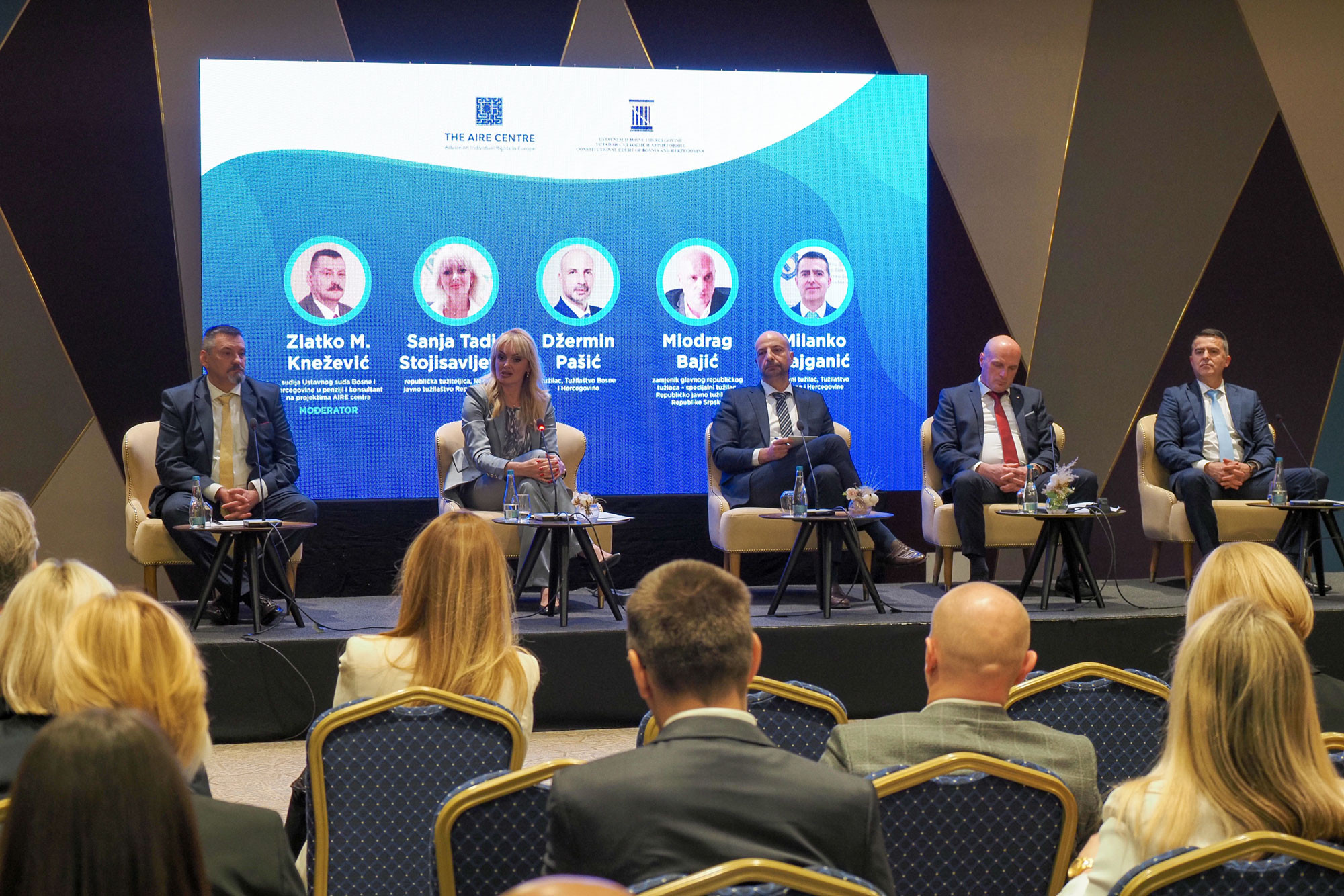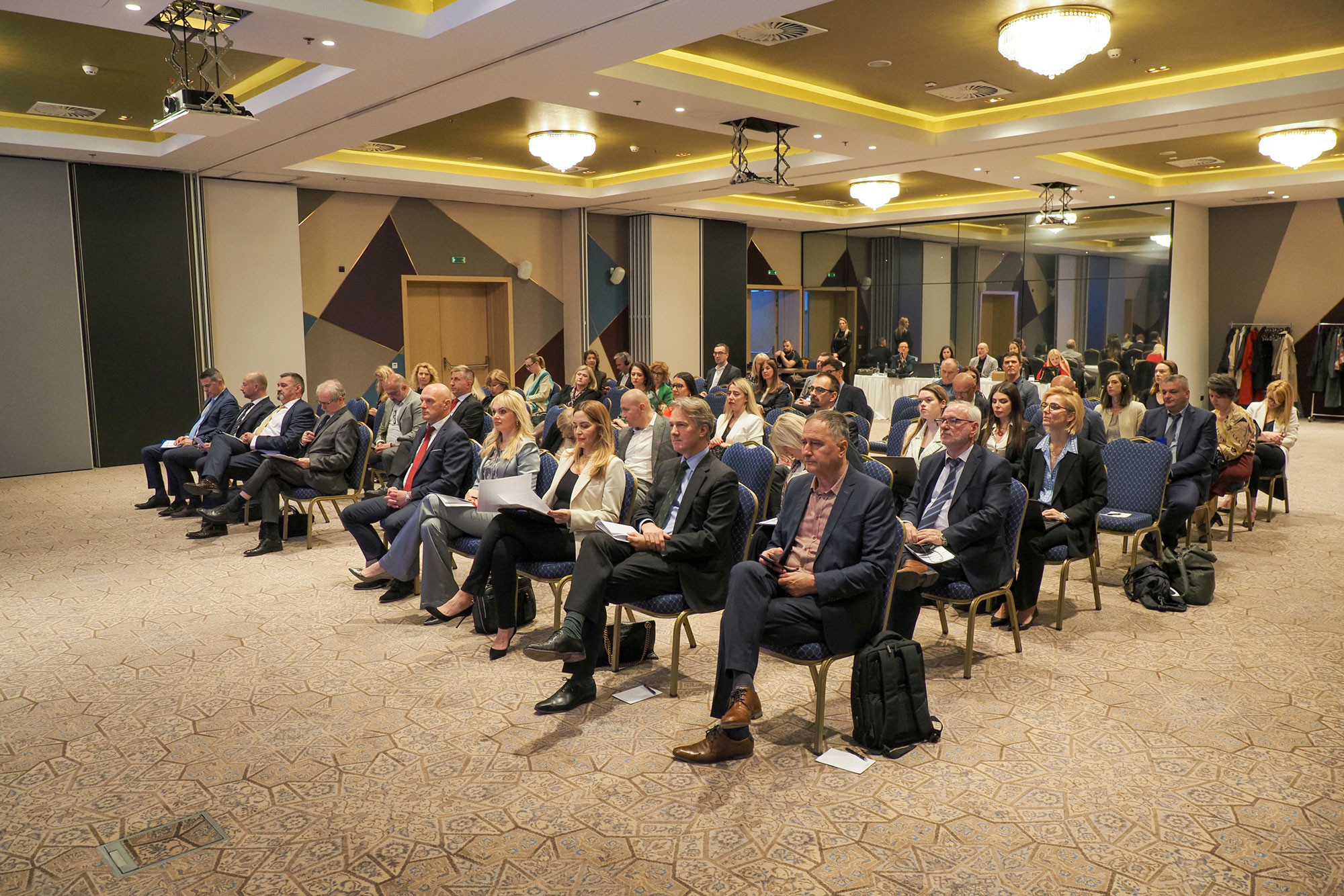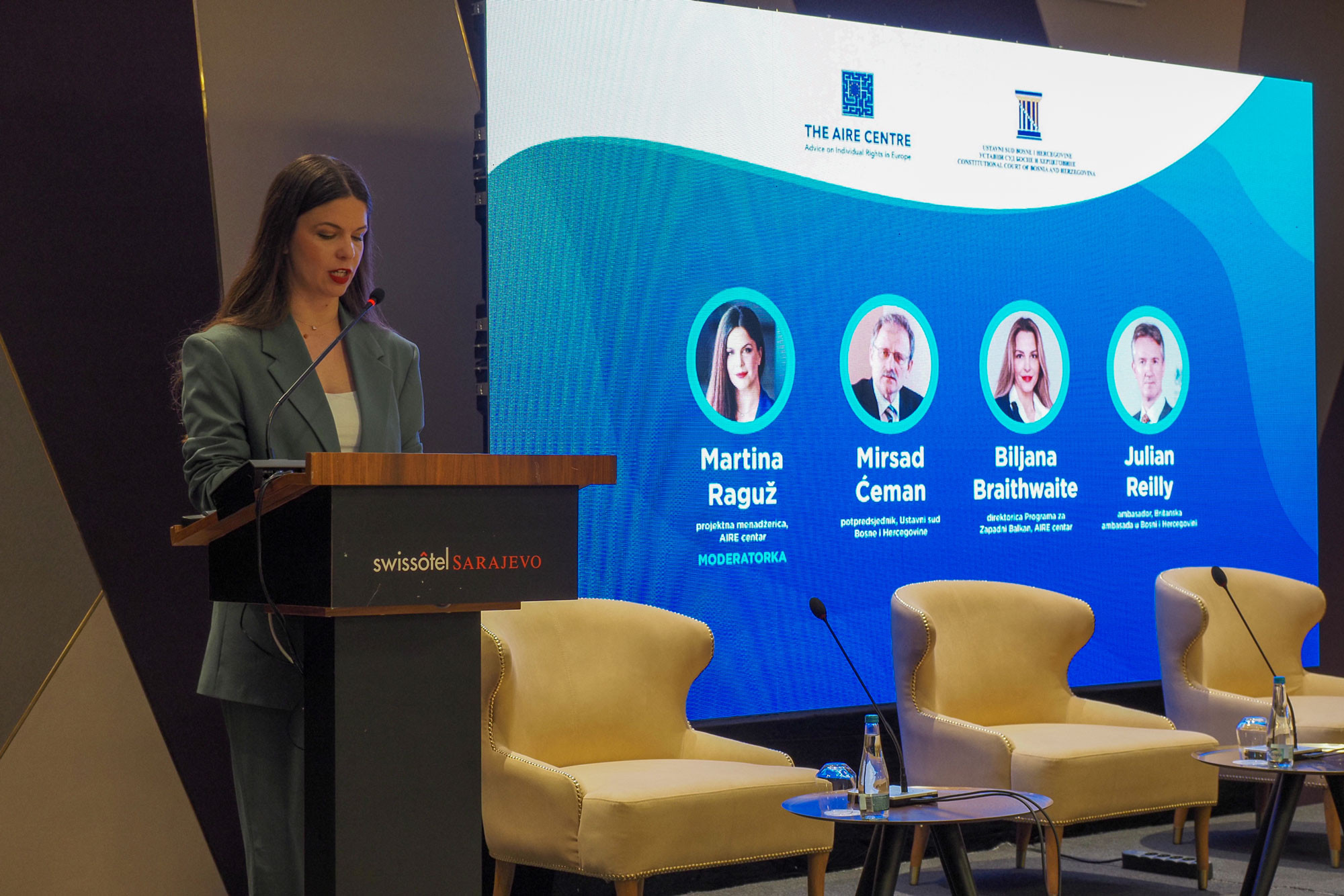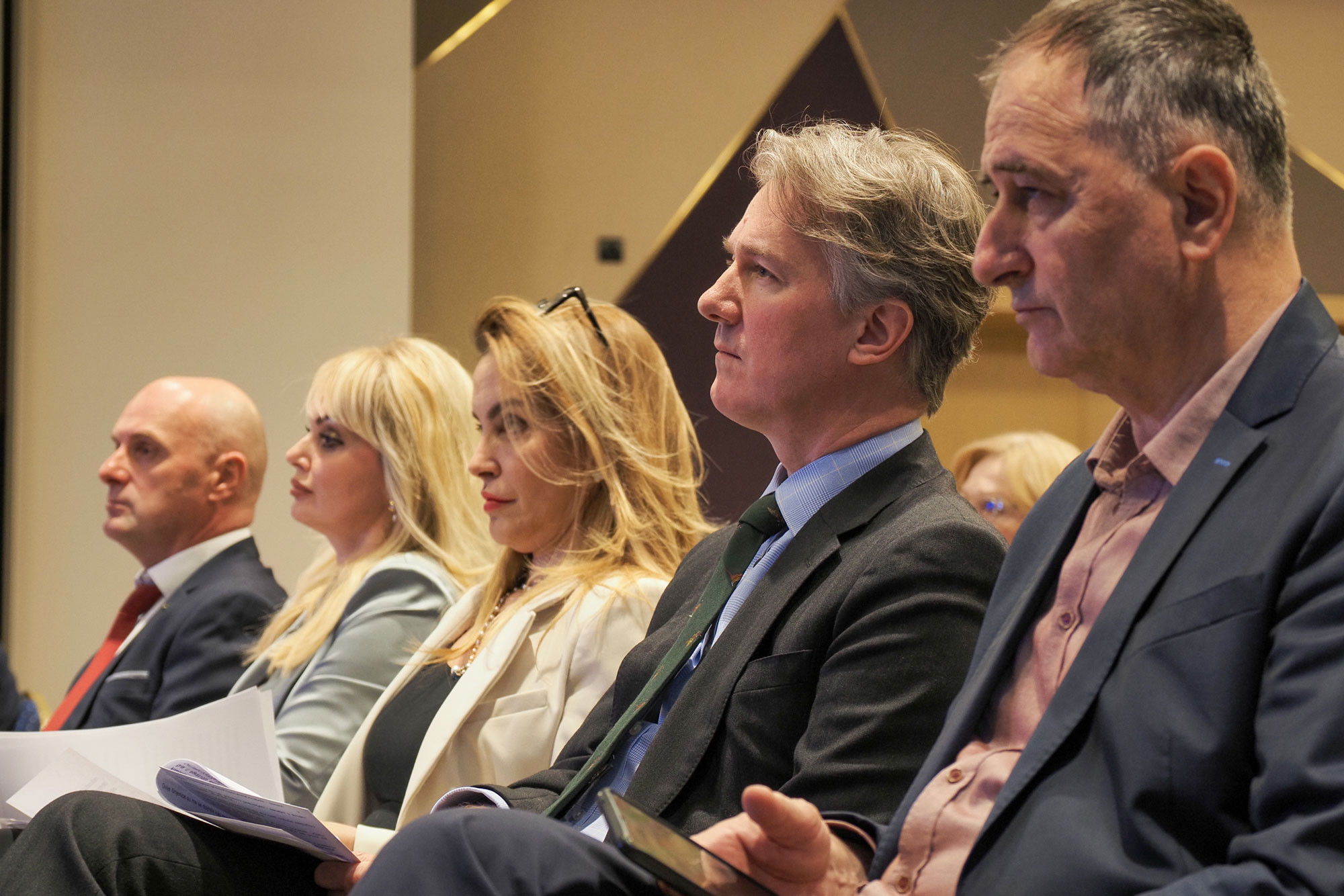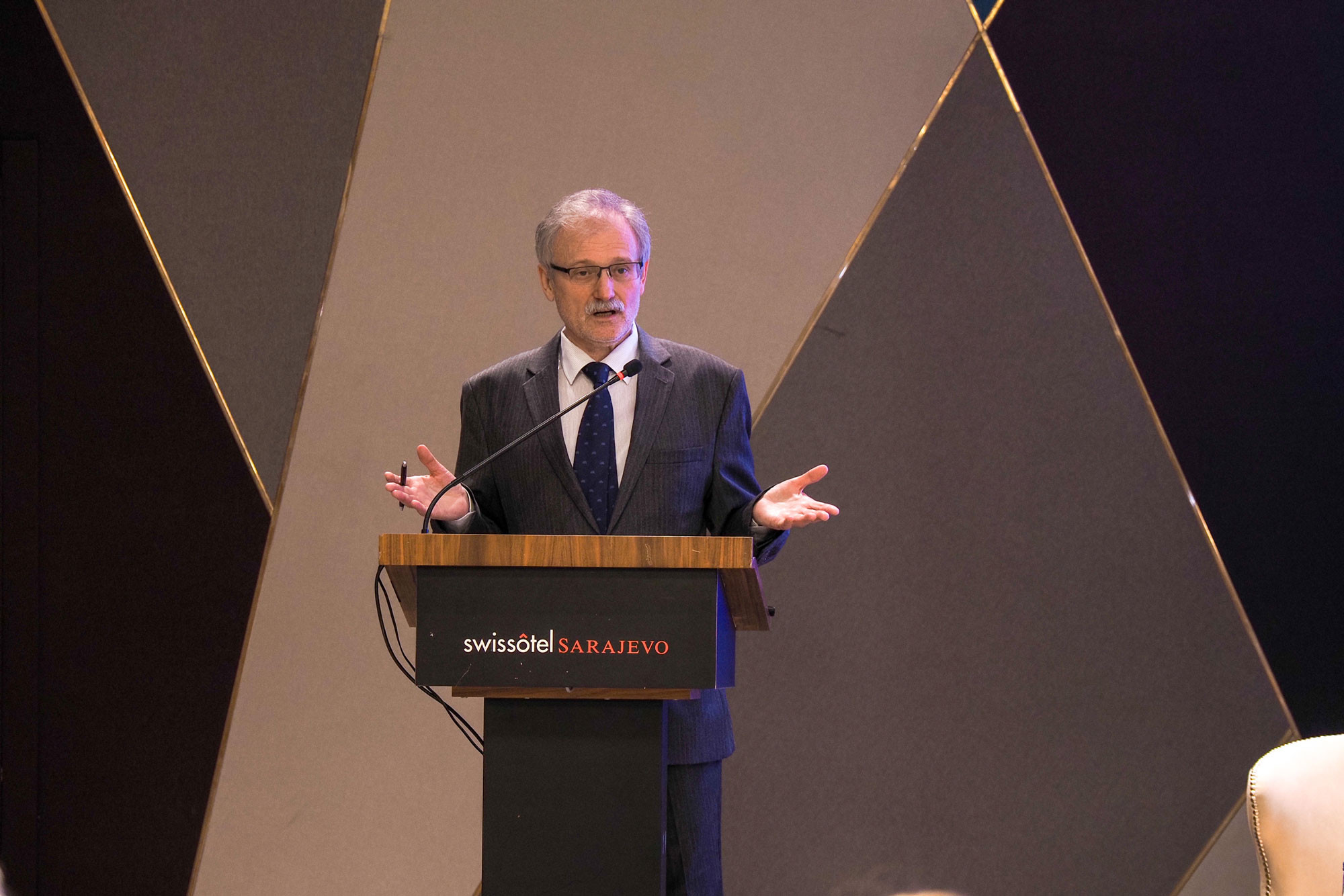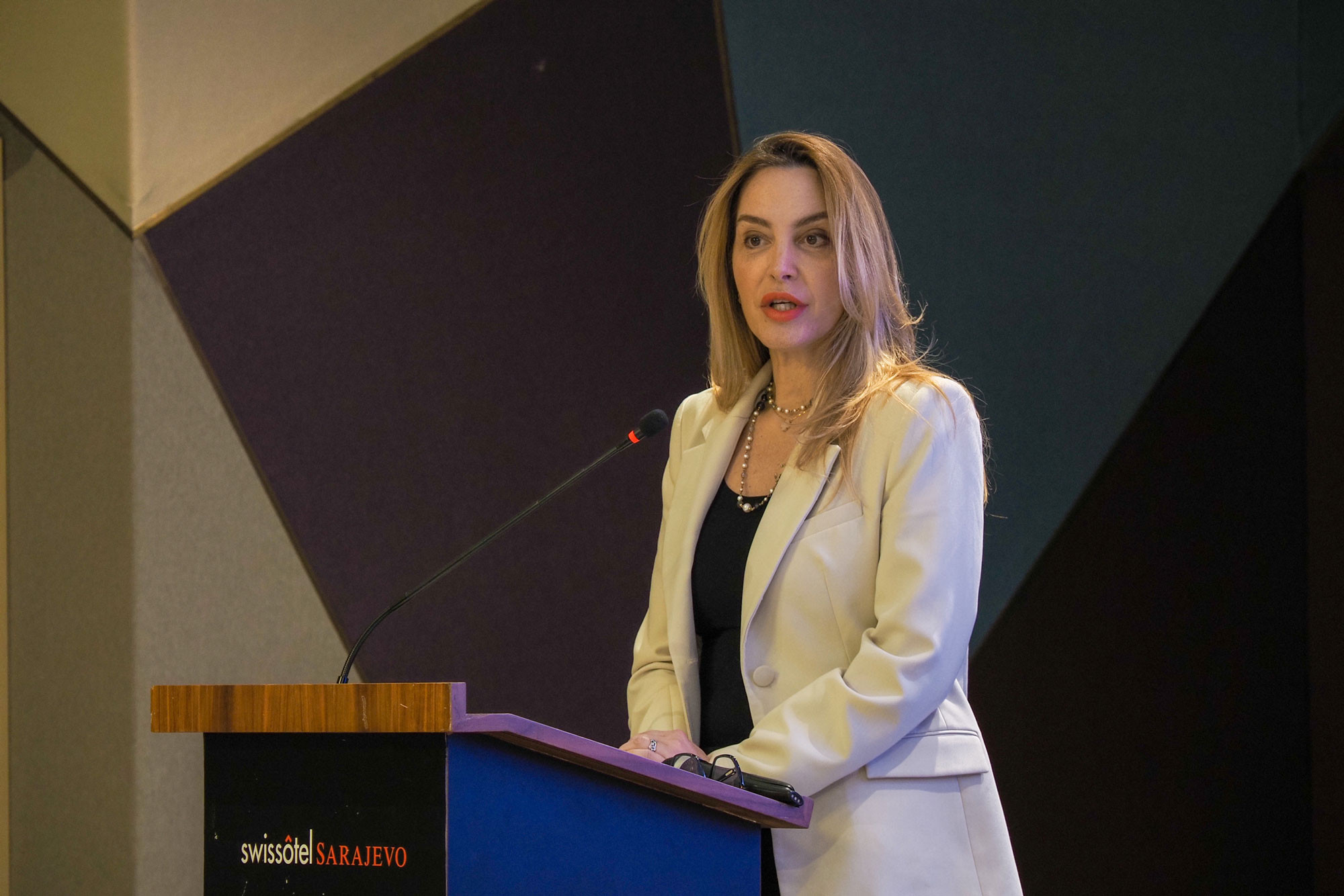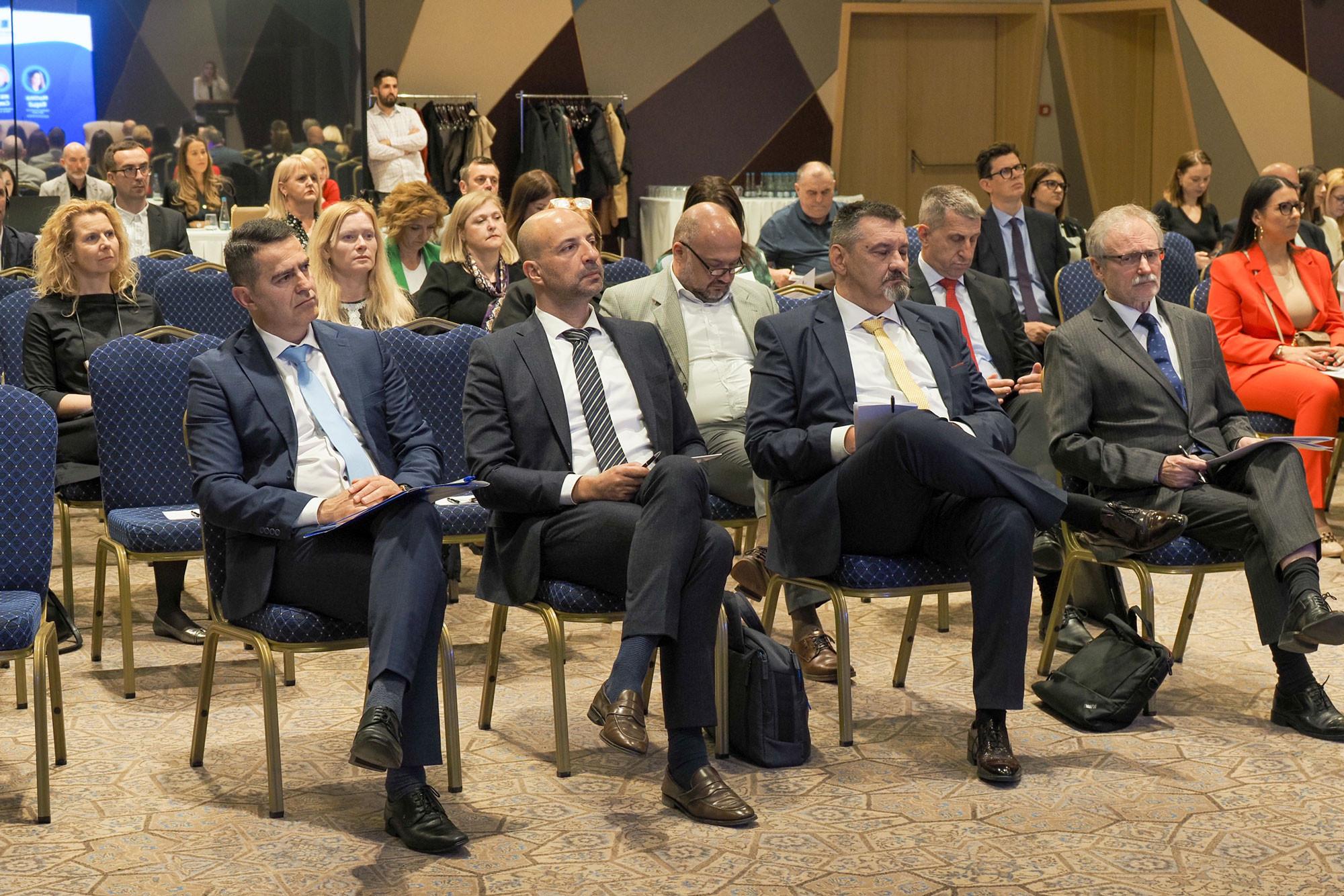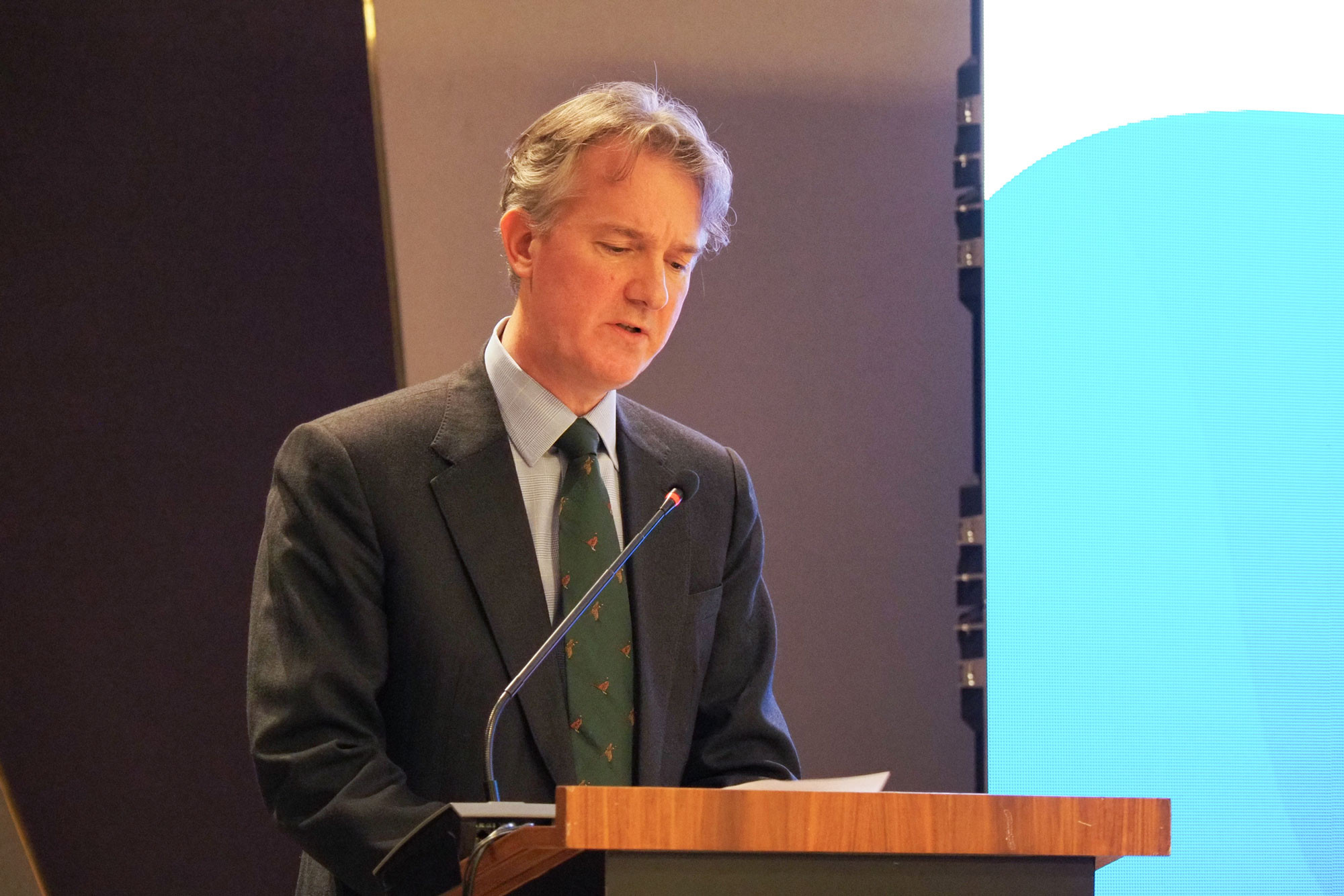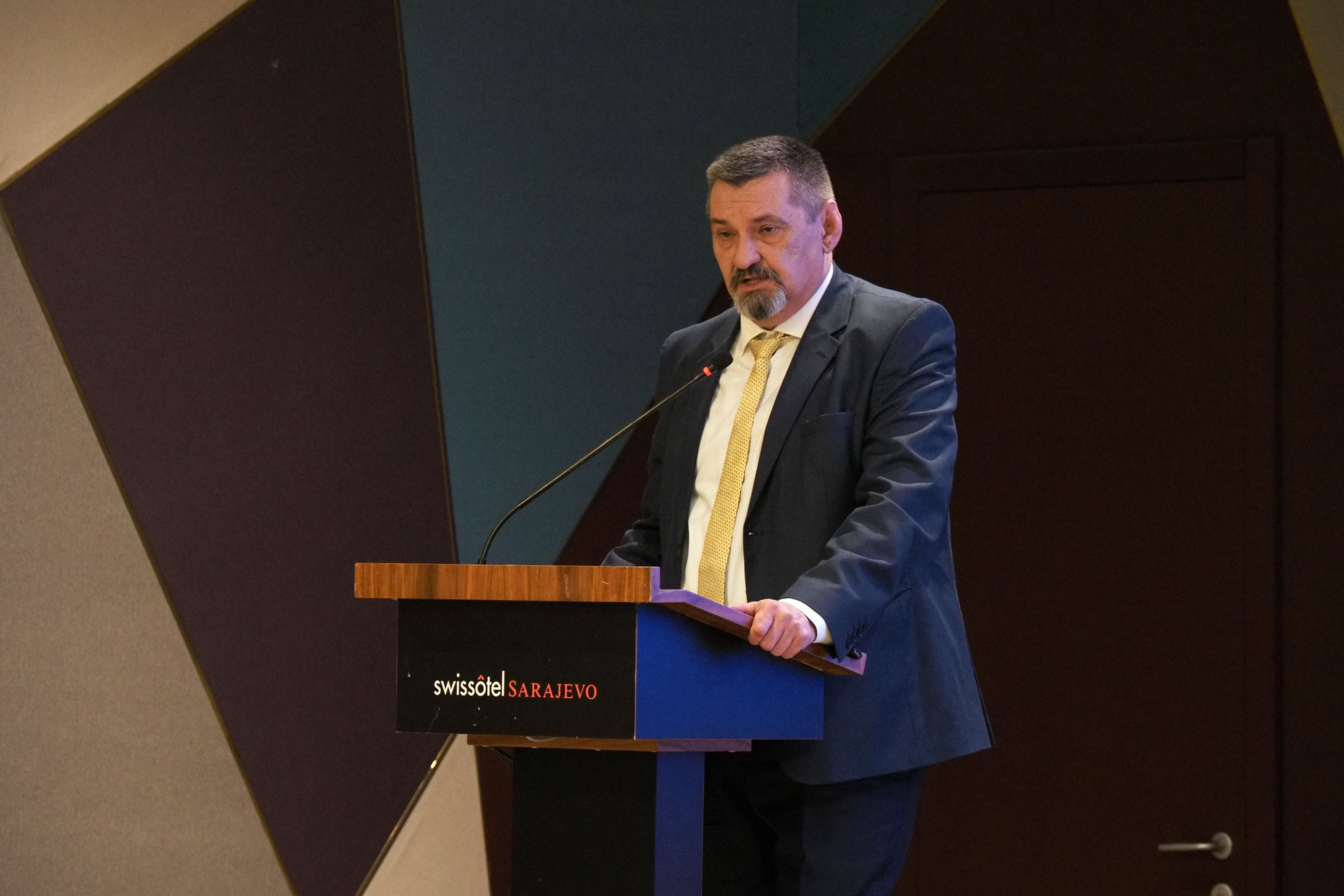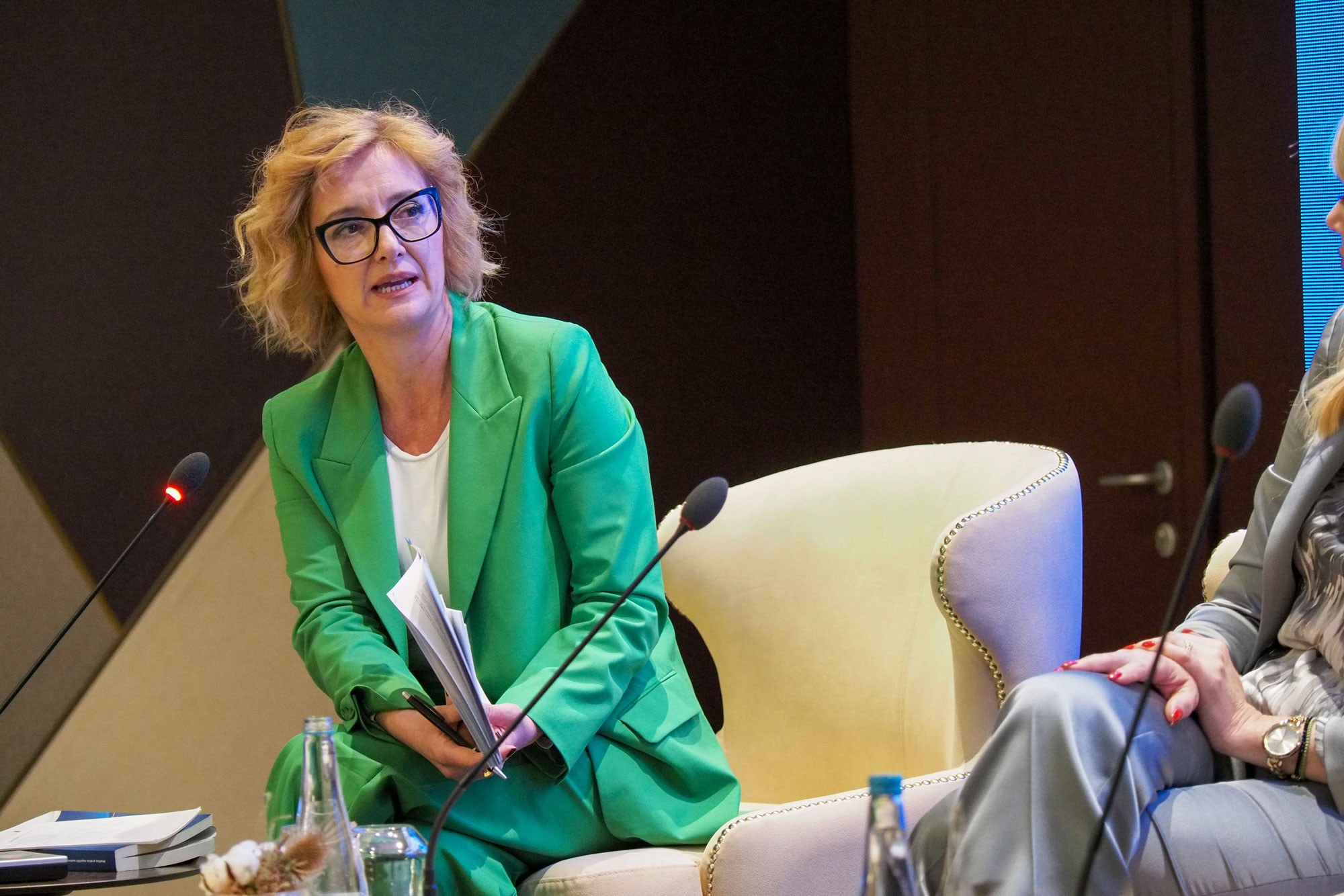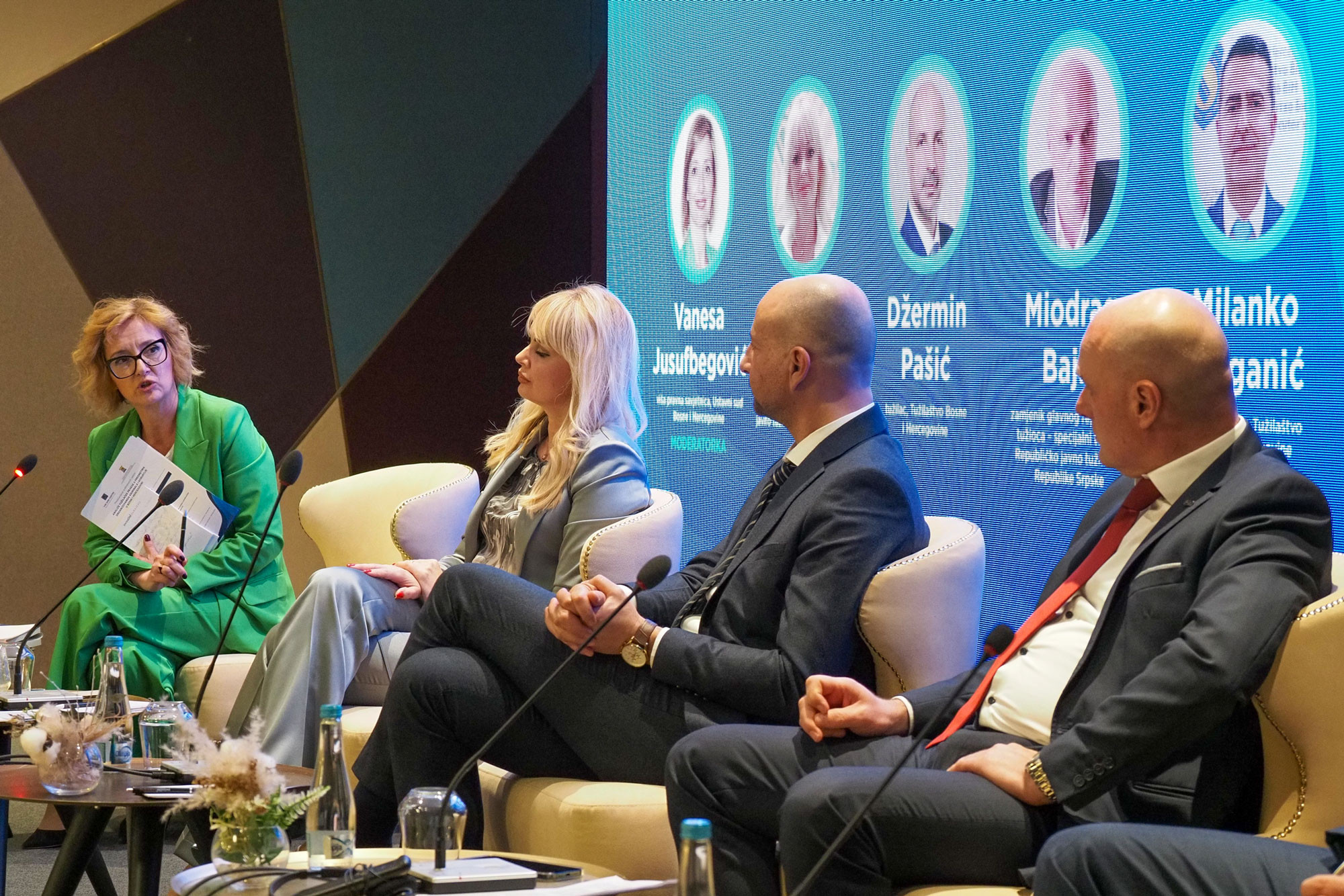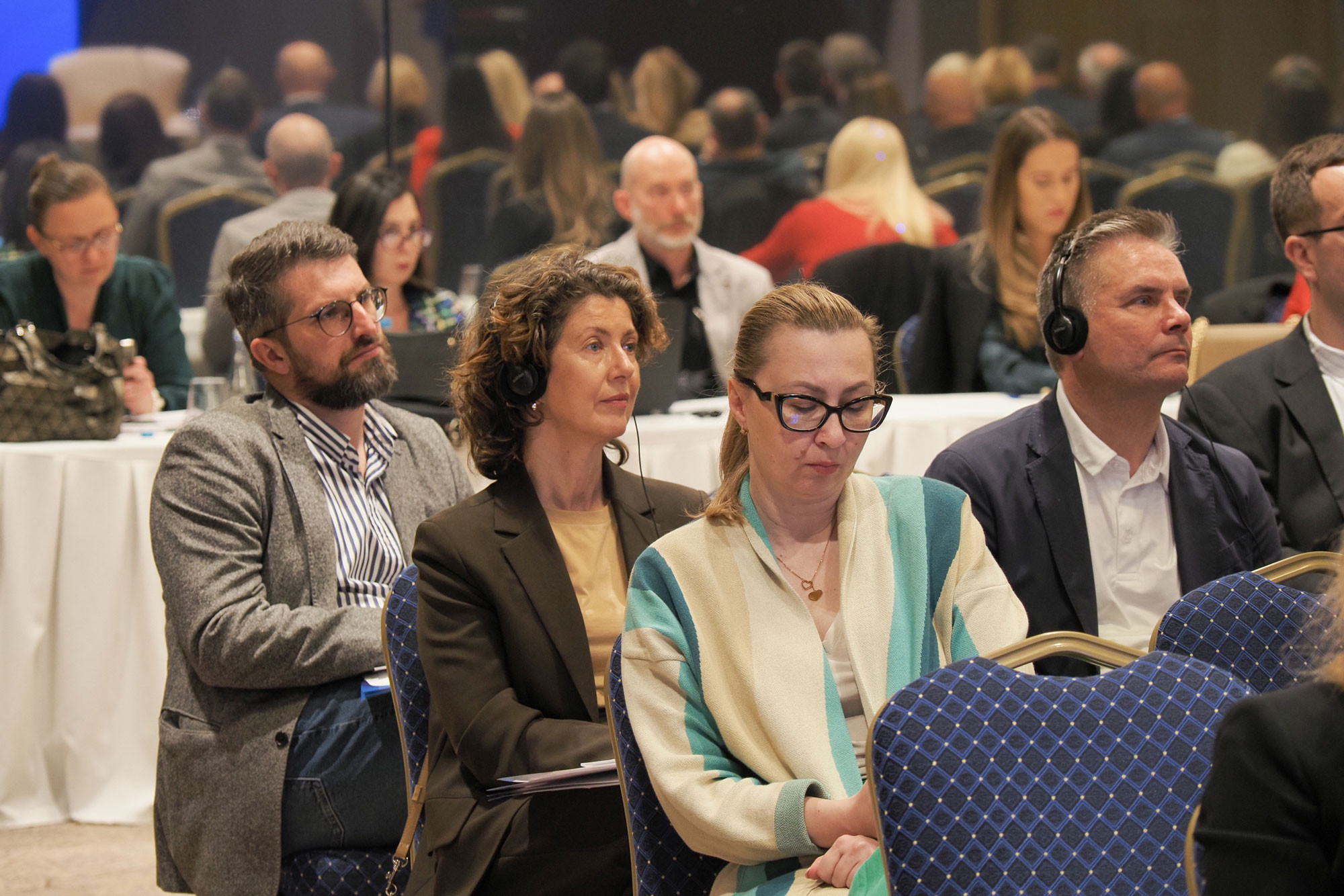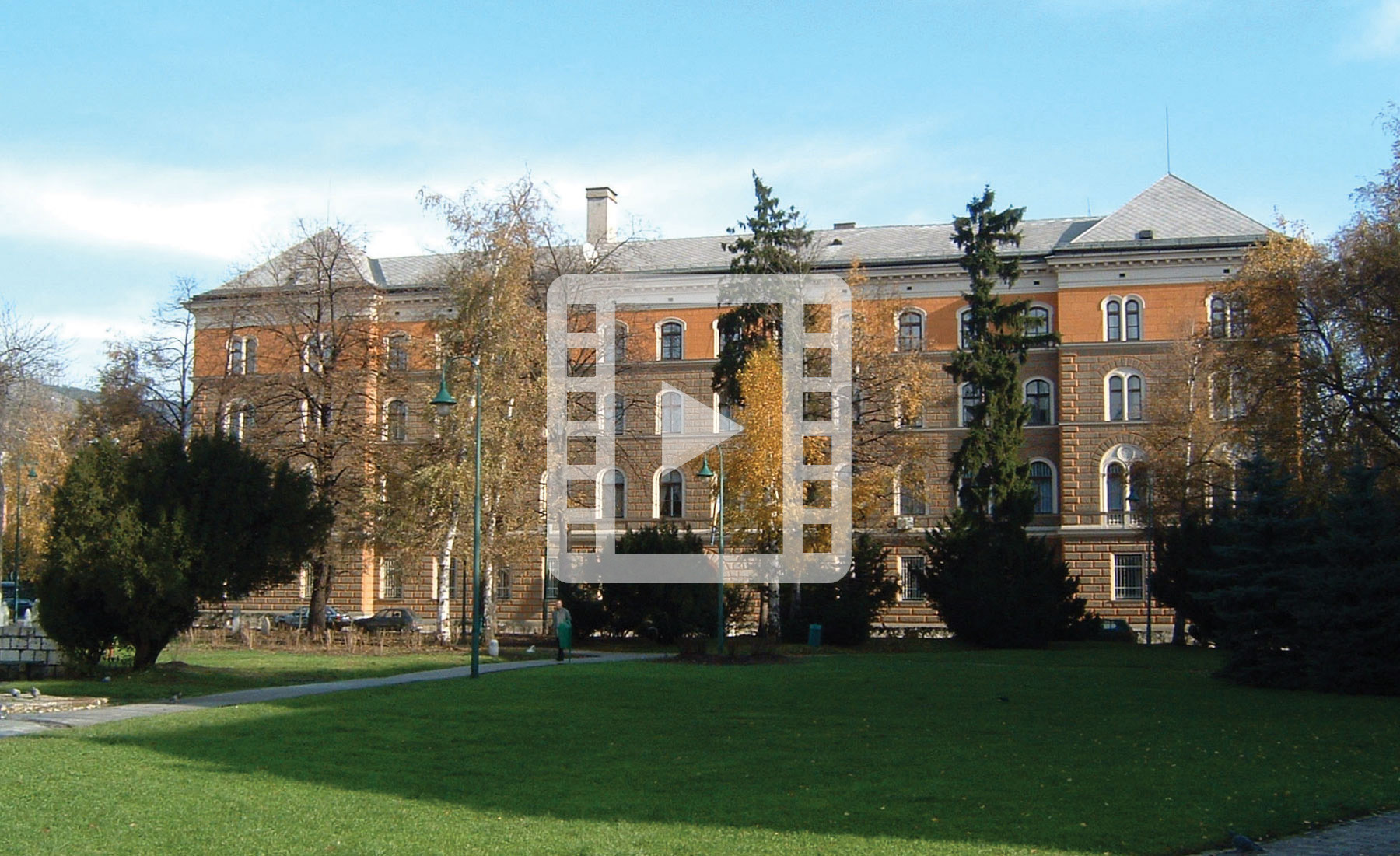One of the strongest tools in fighting organised crime is confiscation of proceeds of crime, i.e. criminal profit. However, different practices and shortage of resources and experts (especially in the context of financial forensics) prevent judicial and investigative bodies from responding effectively to these challenges. This was demonstrated by the preliminary findings of the "Analysis of prosecutorial practice in the cases of organised crime and corruption in BiH" presented in Sarajevo today by the Constitutional Court of Bosnia and Herzegovina and AIRE Centre, with the support of the Government of the United Kingdom.
More than 50 prosecutors and other representatives of judicial institutions, relevant ministries, investigative bodies, international organisations and civil society attended the event, inviting discussion of the promotion of processing organised crime and corruption.
Mr. Mirsad Ćeman, Vice-President of the Constitutional Court of BiH, said that "the quality of laws and regulations and a harmonized case law are of substantial importance not only to the detection and processing of organised crime and corruption but in general", noting that "analyses of this kind are a valuable tool with which the courts and prosecutor's offices, guided by high standards established by the Constitutional Court and the European Court of Human Rights, will promote the rule of law and a law-based state".
All the cases elaborated in this Analysis were also the focus of the Analysis of case law of the highest courts in BiH in cases of organised crime and corruption that was promoted last year by the Constitutional Court of BiH and the AIRE Centre, for the purpose of comparing the actions of the courts and the prosecutor's offices in the same cases.
"A serious and law-based planning of an investigation, highly-professional financial forensics and lawfulness of evidence (on which, among other things, a strong emphasis was made in the analysis) must be the foundations of prosecutorial actions that, as such, will be successful and result in convicting judgments. Otherwise, the credibility and trust in the prosecutors and, by extension, in the judiciary as a whole would be undermined. In view of the importance of all this individually and in totality, this project that has been actively implemented by the AIRE Centre in BiH constitutes a substantial contribution to the rule of law and the building of a law-based state. This is the reason why it has our support and why we have been involved in the projects of the AIRE Centre for a number of years and committed to a joint future cooperation", Ćeman said at the opening of the conference.
“We witness a clear trend in the countries of the Western Balkans that organised criminal groups are connected and cooperate directly. One can be sure that every new technological development would be misused, as was the case with the use of encrypted communication applications for exchange of information and planning to commit criminal offences and the use of virtual currencies to launder/conceal illegally acquired money. A judicial response must be stronger than that. That is the reason why we advocate and endeavour to contribute to a prompter, more effective and stronger inter-institutional cooperation as well as exchange of information and know-how. The research that we are presenting today is part of those efforts”, said Ms. Biljana Braithwaite, Western Balkans Programme Director at the AIRE Centre.
Mr. Zlatko M. Knežević, retired judge of the Constitutional Court of BiH and the editor of this analysis, said that prosecutors from the highest prosecutor's offices of BiH took part in the research, providing direct and professional insight into the challenges in practice.
"Unlike the previous fragmentary assessments, for the first time prosecutors themselves, when analysing the cases, pointed out the good and bad aspects of their actions. It was revealed that, notwithstanding good prosecutorial actions that ultimately resulted in final convictions, there were still systemic and professional challenges in practice”, Knežević said.
Knežević explained that absence or insufficient observance of an investigation plan was apparent in almost all the cases analysed as part of this research.
“The key issues in the investigation activities in complex cases included financial forensics and lack of appropriate financial forensic institutions that could efficiently and without delay provide support to prosecutors in criminal and financial investigations. Individual financial expert evaluations are not efficient and their work quality does meet the challenges emerging in investigations involving thousands of documents. In such complex cases, it is necessary to modify the usual practice and adapt it to the new tools and modern times. This Analysis is a strong argument for modification as well as specialization of prosecutorial actions", Knežević noted.
His Excellency Julian Reilly, UK ambassador to BiH, addressed the gathering, noting that “prosecutors play a key role in fighting organised crime and corruption in any society” and emphasising that “the analysis reflects a joint, multidisciplinary effort by representatives of key prosecutor’s offices in the country, clearly showing a common interest and a strong resolve to identify bottlenecks in efficient criminal prosecution of cases of serious and organised crime and corruption”.
“The Analysis shows that organised crime not only accumulates illegally acquired money but that such money becomes part of our everyday life through being laundered and put into legal circulation. This slowly corrodes our value systems and spreads beyond the conventional borders and limitations as we know them and has an adverse effect on development and, by extension, prosperity in societies. In order to stop this erosion process, all the elements of the judicial processes must unite and work hard. Now is the time for implementation. The United Kingdom will continue to support the judicial reform in Bosnia and Herzegovina so that the judges, prosecutors and investigators could be given tools and understanding that they need to work against criminals, corrupt politicians and their ill-gotten wealth”, Ambassador Reilly said.
The conclusions and recommendations from the today's discussion will be included in the final "Analysis of prosecutorial practice in the cases of organised crime and corruption in BiH" to be presented in the course of this year.

